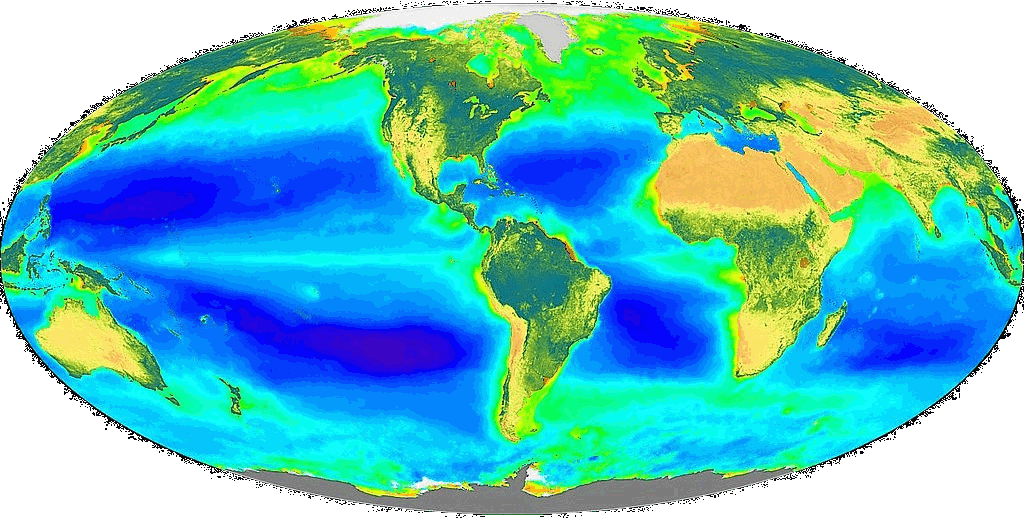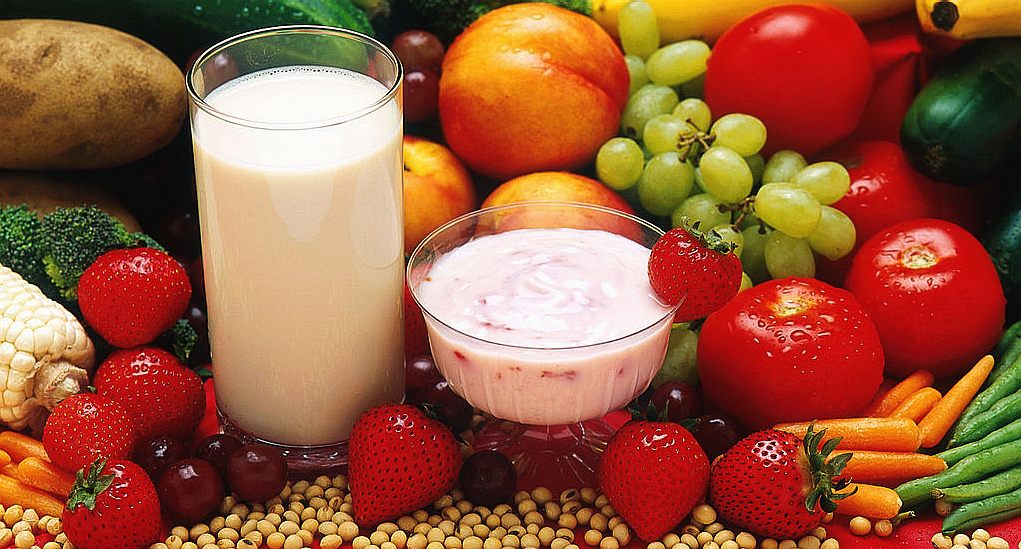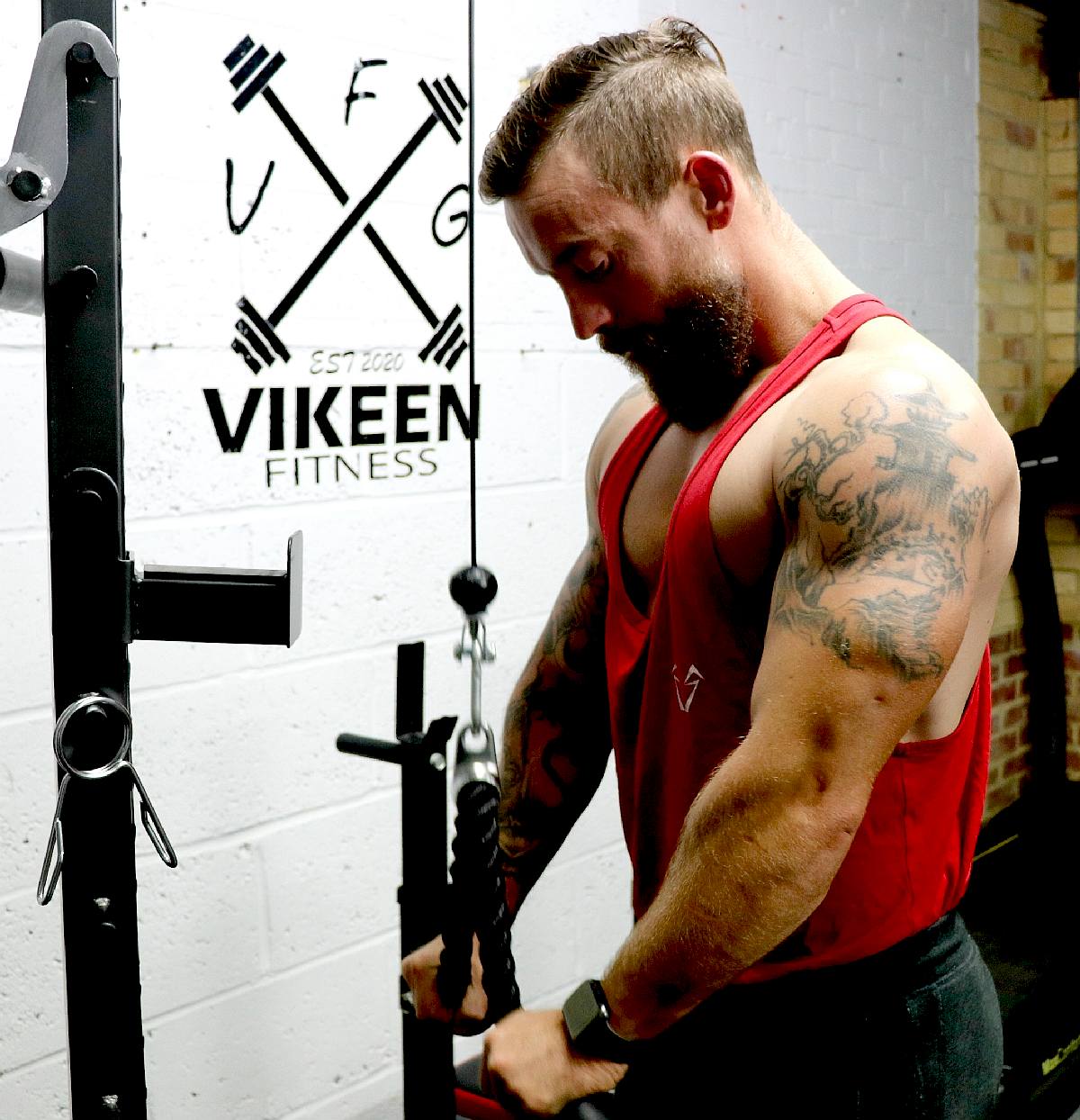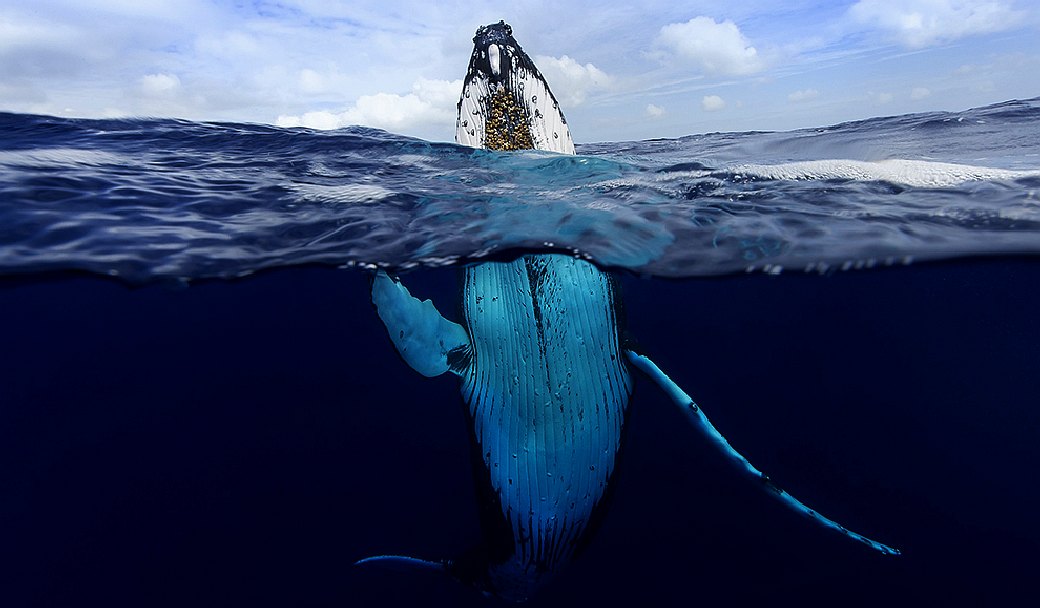|
V E G E T A R I A N S
ABOUT - CONTACTS - DONATE - FOUNDATION - HOME - A-Z INDEX
INCOMING FOOD ENERGY - The average rate of energy capture by photosynthesis globally is approximately 130 terawatts, which is about three times the current power consumption of human civilization. Plants usually convert light into chemical energy with a photosynthetic efficiency of 3Ė6%. It is estimated that between 50% and 85% of the world's oxygen is produced via phytoplankton photosynthesis. Photosynthetic organisms also convert around 100Ė115 thousand million metric tonnes of carbon into biomass per year.
At every successive stage of any food chain potential energy for life is lost as one animal absorbs another. By the time animal protein reaches our tables as meat or fish the theoretical 130 terawatts (trillion watts) we started with for all life on earth is significantly reduced.
Like it or not we are all part of a food chain. Our food footprint is lowered by eating food that originates further down the food chain. Vegetarians eat more sustainably than habitual omnivores, as do vegans and pesceterians.
DON'T FORGET YOUR MINERALS
BETA-CAROTENE
VEGETARIANISM
Vegetarianism is the practice of abstaining from the consumption of meat (red meat, poultry,
seafood, and the flesh of any other animal), and may also include abstention from by-products of animal slaughter.
Semi-vegetarian diets consist largely of vegetarian foods but may include fish or poultry, or sometimes other meats, on an infrequent basis. Those with diets containing fish or poultry may define meat only as mammalian flesh and may identify with vegetarianism. A pescetarian diet has been described as "fish but no other meat". The common-use association between such diets and vegetarianism has led vegetarian groups such as the Vegetarian Society to state that diets containing these ingredients are not vegetarian, because fish and birds are also animals.
Any degree of reduction of animal produce in your diet is sure to make you healthier, while at the same time helping to feed those around the world who are not so fortunate in being able to choose what they eat. In health terms alone it pays to think about ways of reducing your food footprint.
VEGETARIAN DIET - It is possible to live a long and healthy life eating fruits, nuts and grain. In our modern world with processing, we may even enjoy meat like products that are derived from vegetable proteins.
WHAT IS A FOOD CHAIN ?
A food chain is a linear network of links in a food web starting from producer or Primary organisms (such as grass or trees on land, and phytoplankton in the sea, which use the radiation from the sun to make their food) and ending at apex or Predator species (like grizzly bears or killer whales), detritivores (like earthworms or woodlice), or decomposer species (such as fungi or bacteria) that reduce Predator and Primary organisms to earth to give us a (sustainable) life cycle.
A food chain also shows how the organisms are related with each other by the food they eat. Each level of a food chain represents a different trophic level. A food chain differs from a food web, because the complex network of different animals' feeding relations are aggregated and the chain only follows a direct, linear pathway of one animal at a time.
VEGAN DIET - Terry is a vegan, looking pretty fit and loaded with muscle, from his healthy diet. He is the founder of Vikeen fitness, based in Eastbourne, Sussex, UK. And a personal trainer, online and in the gym.
REDUCING CONTAMINATION
If producer organisms are able to ingest toxins or plastics or microplastics laden with carcinogenic toxins, when they are eaten by the next predator up the line, those contaminants are stored in their bodies for the next predator up the line, until finally the top of the food consumption pyramid is poisoned by the accumulation. Vegans and vegetarians are thus less likely to be contaminated by accumulated toxins than omnivores.
Being at the top of the food chain and the major consumer of all flora and fauna on the planet, man is likely to suffer the most from contamination of his primary food sources. Ironically, man is the most dirty animal on the planet, fouling his patch with chemicals and plastic and dumping them in our rivers and oceans where these pollutants enter the food chain to come back and haunt the human race.
Such practices are not United Nations sustainable and not compatible with a circular economy.
LINKS & REFERENCE
https://en.wikipedia.org/wiki/Veganism https://en.wikipedia.org/wiki/Vegetarianism https://en.wikipedia.org/wiki/Food_web
TOP OF THE WORLD - Large filter feeders like this humpback whale are at the top of their food chain and so entirely reliant on the chain to be free of cancerous toxins or plastic for a healthy life. It's important to remember that when an organism eats itís prey, it only gets a fraction of the energy that the prey has. This is why as we go up the food pyramid, the number of organisms decrease. This is because there isnít enough energy to sustain too many lives. Vegetarians are helping to keep animals that cannot change eating habits alive and well.
BIOMAGNIFICATION - BP DEEPWATER - CANCER - DDT - FISHING NETS - FUKUSHIMA - MICROBEADS - MICRO PLASTICS - OCEAN GYRES - OCEAN WASTE - PACKAGING - PCBS - PET - PLASTIC - POPS - SINGLE USE
This website is provided on a free basis as a public information service. Copyright © Cleaner Oceans Foundation Ltd (COFL) (Company No: 4674774) 2022. Solar Studios, BN271RF, United Kingdom. COFL is a charity without share capital.
|




